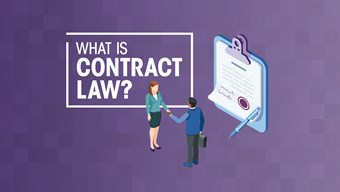With almost one in ten households not currently holding a TV licence, it seems many people are unwilling to pay the £159 licence fee. Therefore, people all over the UK are at risk of facing a fine of up to £1,000. We asked Peter Goodchild, Programme Lead for the GDL and MA Law at The University of Law, to share some advice to help TV owners understand when they need to purchase a licence, how much it costs, and the potential consequences of avoiding paying for a licence.
By Editorial Team. Published 21 March 2019. Last updated 11 May 2023.
Do I really need a licence?
If you’re a homeowner or tenant of a property, and you watch or record programmes on a TV, computer or any other device as the programme is being broadcast live, and/or you download or watch BBC programmes on iPlayer, then a TV licence is required. By purchasing a licence you cover anyone in the residence that watches or records a live broadcast through a TV, computer, laptop tablet, mobile phone or any other device that can receive a TV signal.
You don’t need a licence if you are watching non-BBC programmes with online catch-up services, videos, DVDs or Blu-Rays, clips on websites that aren’t live broadcast (e.g. YouTube) and closed-circuit television (CCTV).
How much will it cost me?
The cost for a full colour TV licence is currently £159 per year, which can be paid monthly, quarterly or in one lump sum. There is also a licence for black and white TV sets which costs £53.50 per year.
Am I exempt from paying for a licence?
If you’re 75 and over and receive Pension Credit, you can apply for a free TV licence. Individuals who have a severe visual impairment can also get a discounted licence. Finally, there are also discounted licences available to those living in residential care homes or sheltered accommodation, which can be organised by management on behalf of the individual.
What happens if I don’t have a licence?
If you’re caught without a TV licence, you could face a fine of up to £1,000 plus any legal costs and compensation incurred. It’s estimated over 250,000 homes currently don’t have a TV licence, 33,000 of which are occupied by young people who are putting themselves at risk of facing a fine. The TV licensing agency has a national database of all licence holders and has enforcement officers that check for TV owners. They also have a fleet of detector vans that can target homes that they think don’t own a licence.
If you’re fascinated by the ways the law affects the intricacies of our modern lifestyle, why check out our law courses?



